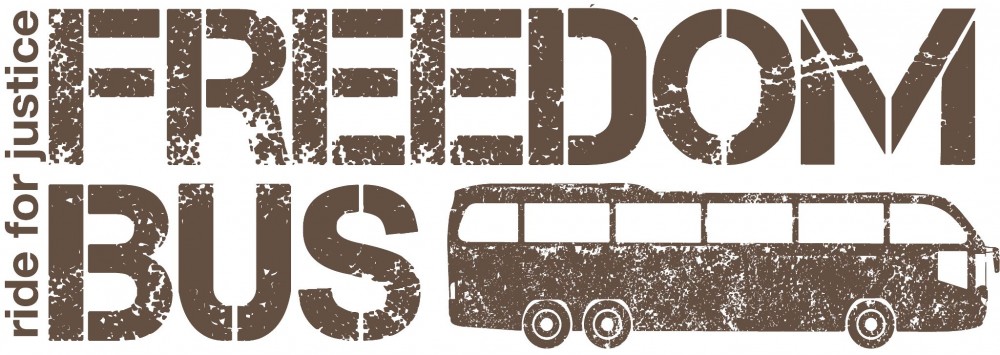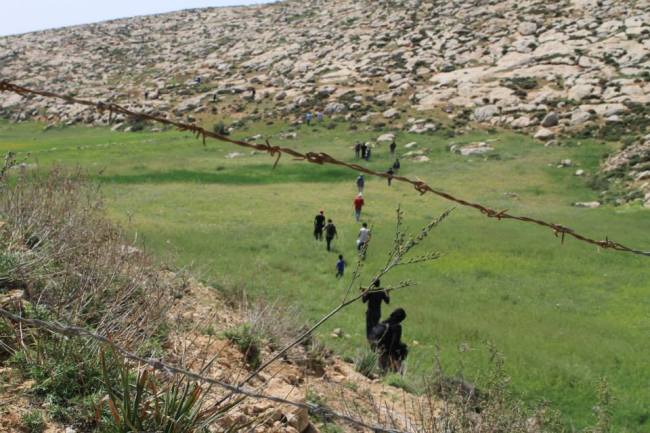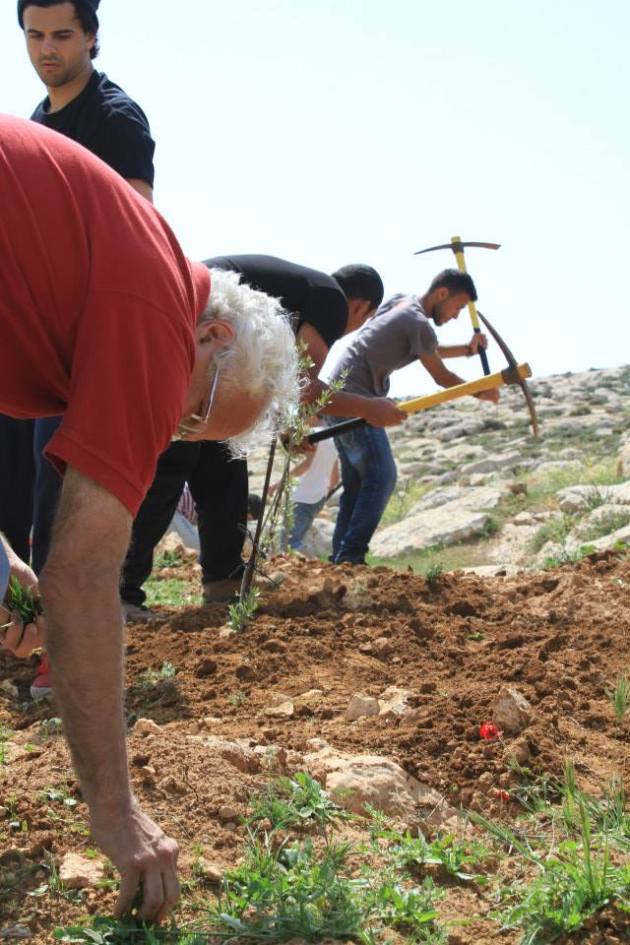At the crack of dawn, 6.30 am, some of us get up to join the Italian volunteers for their daily trip to pick up children from the military escort. After those who joined yesterday had shared what they witnessed with the group, more people wanted to see the transfer of those school children with their own eyes.
From our new friends, the Italian volunteers, we learn that there was an incident yesterday in the afternoon, as the children were on their way home from school: settlers threw stones at them. So today the volunteer in charge needs to speak with the soldiers and remind them to adhere to the agreement.
We also learn that since we arrived an Israeli soldier has been stationed outside At-Tuwani, observing the village – these news coincide with one of our group members having spotted six soldiers walking around the construction site of the new kindergarten which is only metres from our accommodation.
This is part of life under occupation, we don’t worry about it, we carry on as usual.
While we wait for the children, many ask questions and they mostly evolve around – why does the army not protect the children? And how about the police? Occupation and all its ugly accessories are difficult to comprehend at first. It also reminds those of us who spend more time in Palestine that we must be careful not to adapt too much but always be conscious of the crime in the acts of the oppressor regime.
One of our group members is a young mother, and at the sight of children being herded down a dusty slope by a military jeep with four soldiers in it, the tears run down her appalled and saddened face.
Illegal settlers sometimes drive past the kids, hitting, pushing and verbally abusing them. The soldiers remain in their jeep. We learn a new tactic is used. The youngest soldiers are sent for this job, meaning they don’t dare to push back violent settlers twice their age. In the beginning more senior soldiers were allocated to this task and at least they tried to actually protect the children.
We return to At-Tuwani, breakfast and morning circle time and after that we set out to one of the most exciting missions yet – today we are heading out to Mufaqarra with a tractor to plant 200 olive trees!
Upon arrival the local Bedouin farmer explains us the situation in detail. He received an internationally unlawful notice that a patch of land where he plants olive trees is no longer his, it says he was illegally using it and he had no claim to the land.
These are occupation tactics for stealing land. First it is confiscated under pretence that it is needed for military exercises, later it suddenly becomes annexed to an illegal settlement.
Off we go to plant olive trees on that very plot of land. The work is hard, the land is on a very steep hill and gigantic rocks are interspersed with patches of rich soil of a unique and beautiful shade of brown.
Some pluck weed, others start toiling the land with pick axes and finally we begin to plant the olive tree saplings. There is something deep, true and magical about planting a tree. It’s like breathing new life into the earth, a tree can outlive us all provided it is not cut, poisoned or burnt by Israeli settlers, that is… but for now we are happy, we create, we make a true and hopefully lasting difference – to sum it up, it’s such a wholesome and symbolic act.
As part of the infamous “price-tag” campaigns, which is the settlers’ way of revenge for any support of Palestine, olive trees are often times popular victims. Settlers spray them with poison, cut or set whole groves on fire. Going against the very land they claim is holy and sacred…
Think of trees – nature has a way of protecting them wherever weather is adverse and storms are harsh, the roots of trees will grow deeper. This also applies to the people of Palestine.
Everyone has a great time, people enjoy the oftentimes therapeutic task of tending to the land, it’s re-connecting with nature but most of all it means re-connecting to the reality of our world in which we live, where occupation and apartheid, land and water theft, killing of livestock, assault and murder of natives and their children, restriction of movement and all the other manifold ways of destroying Palestinians’ livelihoods are not something we will stand for.
200 olive trees later we are happy, exhausted and positively starving! Our host and his children are very pleased with the result of today’s work and they insist we stay for lunch.
On the way back we navigate carefully as to not trip over any rocks – the Palestinian plains are very unique – although they are luscious green there are thousands of small rocks littered everywhere, hence it is sometimes referred to as “Land of stone and thyme”. Conversations erupt as to how tricky it is to move slowly, let alone imagine settlers chase you when it is impossible to move fast.
As we cool off inside a comfortable tent the local women bring us food and it is so rich and tasty that none of us can stop eating. We all reflect on how generous and hospitable Palestinian people are, how they will either share or give whatever they have even if it is not much and always with a smile and so much warmth.
“I have never met any people that are kinder or more generous than the Palestinian people.” This sentiment can be heard several times a day as part of conversations between people.
When we finish lunch we say good-bye to our host and his family and The Freedom Tractor takes us back to At-Tuwani.
Everyone needs a break after a hard day’s work, yet we gather the final scraps of our energy and finish what we started yesterday – some of us accompany the two local shepherds and their flocks and others finish re-building the shelter for children (where they will wait for their escort).
The evening of another long day concludes with a movie night. We all begin to dread the upcoming end of the 2014 March Freedom Ride and we all agree that really, this ride will never end but continue in our heart forever.
Palestine is working its magic, as the days go by people feel increasingly attached to the land and its people and everyone already feels somewhat conflicted about departing.






